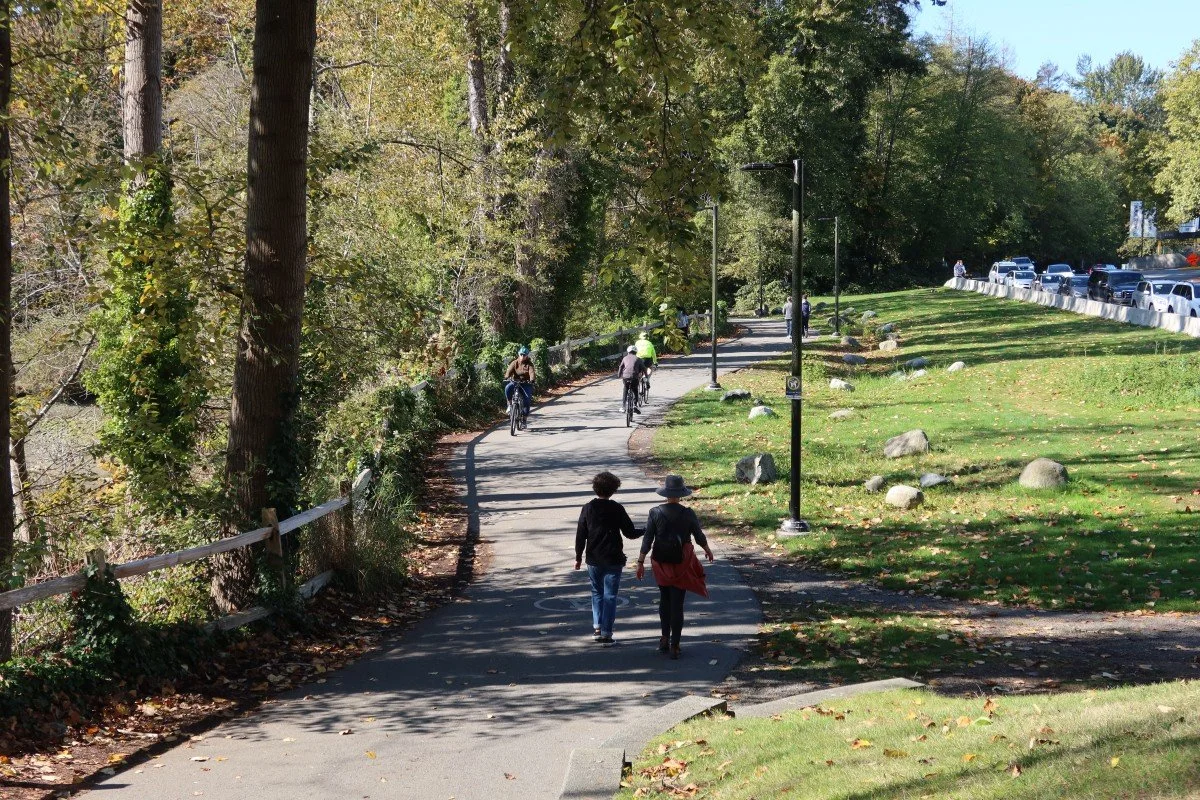We can resolve our transportation challenges
Transportation accounts for 40% of West Van's emissions*
Having alternative ways of getting around helps reduce our over-dependence on vehicles. Driving should be a choice, not a necessity. Greater use of electric vehicles, transit and active modes of transportation will reduce our greenhouse gas (GHG) emissions. Across the region planning for affordable housing to be closer to jobs will help to dramatically reduce GHG emissions.
Addressing highway traffic will require regional solutions
Reducing demand on current road and bridge infrastructure will relieve congestion. Solutions including Bus Rapid Transit (BRT) lines and a Sea to Sky regional service, have been agreed by the Metro Mayors’ Council, but may take years to be built. We can secure new infrastructure if we present a united front, such as by partnering with our North Shore neighbours.
We can tackle traffic in our district
Encouraging alternatives to driving for those who can, such as kids being driven to school. Enabling more people who work in West Van to be able to live here. Future growth should aim to create compact, complete communities in existing population centres and major transit corridors.
West Vancouverites want better options, including transit
Demand depends on fast, frequent, reliable, and high-capacity transit.
Routes must be designed in consultation with the community. Access needs to be barrier-free and inclusive.
We need new Active Transportation infrastructure
Active Transportation includes walking, biking, and other forms of mobility using your own power. We need good-quality walkways, bikeways, and low-speed streets. Routes must be welcoming, safe, and attractive.
We should support alternatives to car ownership
Develop incentives for carpooling, encourage carsharing. Support accessibility improvements for ride-hailing and taxi services.
References
1. West Vancouver Community Energy and Emissions Plan.
2. Transport 2050 - the current Regional Transportation Strategy.



